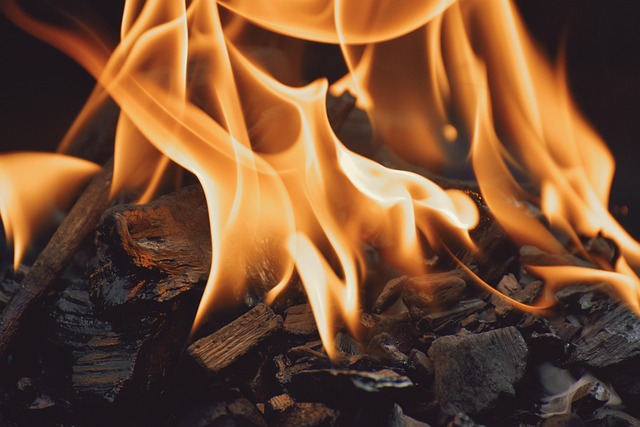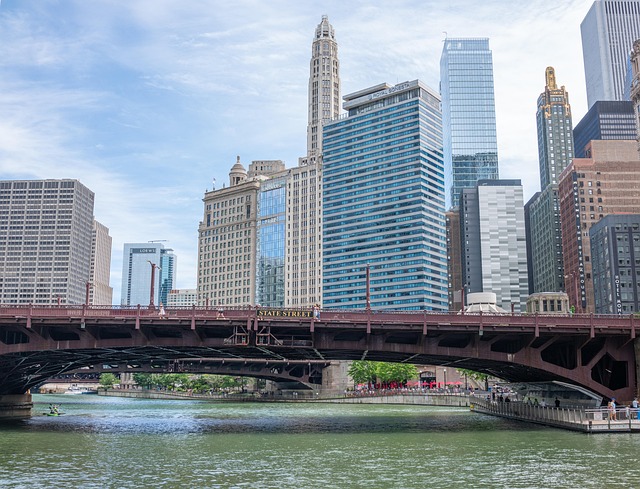Selling fire-damaged homes in Chicago requires a strategic approach due to complex legal and financial aspects. Illinois law demands transparent disclosure of fire damage, with proper documentation crucial for compliance. The process involves assessing damage, understanding local regulations, and navigating insurance policies. While severe damage may require extensive renovations, desirable neighborhoods and economic booms can offset challenges. Effective marketing strategies, such as highlighting transformations, can lead to successful sales. Embracing green building practices and focusing on location offer opportunities for investors in Chicago's evolving real estate market.
“Illinois, particularly the bustling Chicago market, witnesses a unique real estate phenomenon through distressed property sales, notably the impact of fire-damaged homes. This article delves into the legal intricacies surrounding these sales, analyzing the Chicago market’s challenges and opportunities. We explore key factors influencing the disposition of fire-ravaged properties and guide readers through the purchasing process in Illinois. Case studies highlight successful transactions, while future trends offer insights for investors keen on navigating this niche segment, especially when selling fire-damaged homes in Chicago.”
- Understanding Distressed Property Sales: A Legal Perspective
- The Chicago Market: Fire-Damaged Homes and Their Impact
- Factors Influencing the Sale of Fire-Damaged Properties
- Process of Purchasing Distressed Real Estate in Illinois
- Case Studies: Successful Sales of Fire- Damaged Homes
- Future Trends and Considerations for Investors
Understanding Distressed Property Sales: A Legal Perspective
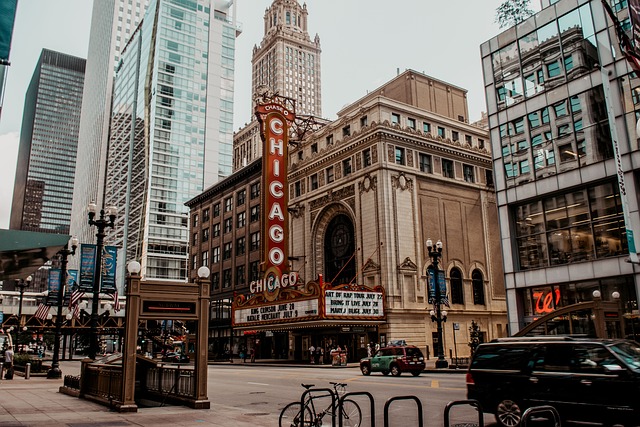
Distressed property sales, including selling fire-damaged homes in Chicago, are a unique legal area that requires specialized knowledge. These transactions often involve properties that have sustained significant damage or are in foreclosure, leading to complex legal considerations. From a legal perspective, understanding these sales involves navigating various regulations and laws designed to protect both buyers and sellers.
In Illinois, for instance, selling fire-damaged homes comes with specific disclosure requirements. Sellers must provide potential buyers with accurate information about the property’s condition, including any known or suspected damage caused by fires. This transparency is crucial in ensuring that buyers make informed decisions. Legal experts emphasize that proper documentation and compliance with local zoning regulations are essential steps to avoid future disputes and ensure a smooth sales process for both parties involved in such transactions.
The Chicago Market: Fire-Damaged Homes and Their Impact
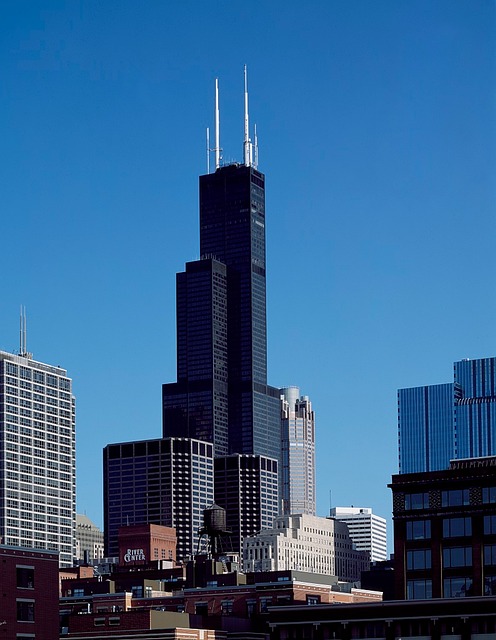
The real estate market in Chicago, particularly when it comes to distressed properties, is unique due to its diverse neighborhoods and rich history. One specific challenge within this market involves fire-damaged homes. These properties often present a complex scenario for both buyers and sellers. Many investors and homebuyers are drawn to the potential for renovation and reconstruction, seeing these damaged homes as an opportunity to create something beautiful and new. However, navigating the legal and financial aspects of purchasing or selling such properties can be intricate.
Selling fire-damaged homes in Chicago requires a thorough understanding of local regulations and insurance policies. Homeowners facing this situation may need to consider extensive repairs or even demolition, adding complexity to the sales process. Despite these challenges, there is a growing interest in transforming these distressed assets into vibrant residential spaces. The market’s ability to absorb and reshape such properties reflects the resilience and adaptability of Chicago’s real estate sector.
Factors Influencing the Sale of Fire-Damaged Properties
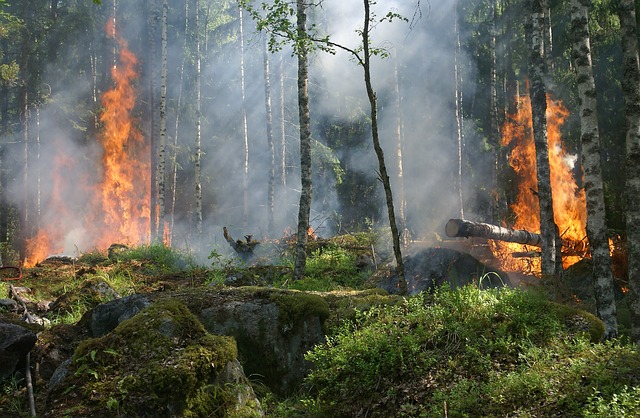
When it comes to selling fire-damaged properties in Chicago, several factors play a crucial role in the process. One of the primary influences is the extent of the damage. Properties with minimal smoke and water damage may still be attractive to buyers, especially if they’ve been well-maintained and repairs are up to date. In contrast, homes that have suffered extensive charring, water stains, or structural damage might need significant renovations, impacting the asking price. Location also matters; properties in desirable neighborhoods or areas with strong real estate markets could see higher interest, even for fire-damaged homes, due to their location’s inherent value.
The condition of the surrounding market is another key factor. During economic booms, buyers might be more willing to take on the challenge of repairing and restoring a fire-damaged home. In contrast, in slow real estate markets, selling these properties could be more challenging, leading to longer listing times or lower sale prices. Additionally, the presence of supportive programs or incentives from local governments or insurance companies can make a significant difference for owners looking to sell their fire-damaged Chicago residences.
Process of Purchasing Distressed Real Estate in Illinois

In Illinois, purchasing distressed real estate, such as fire-damaged homes in Chicago, involves a strategic process that requires careful consideration and expertise. The first step is to identify potential properties through various online platforms or by networking with local realtors who specialize in such transactions. These sales often occur through foreclosure proceedings, providing an opportunity for investors to acquire properties at below-market values.
Once a suitable property like a selling fire-damaged home in Chicago is identified, the buyer must navigate legal and financial aspects. Engaging a qualified real estate attorney is crucial to understanding any potential legal issues related to the property’s history. Additionally, buyers should conduct thorough inspections to assess the extent of damage and necessary repairs, ensuring they are aware of the financial commitment involved in rehabilitating the distressed asset.
Case Studies: Successful Sales of Fire- Damaged Homes

In the vibrant real estate market of Chicago, distressed properties, particularly those affected by fires, present unique challenges and opportunities for both sellers and buyers. However, case studies reveal that fire-damaged homes can indeed sell successfully with the right strategies in place. For instance, a recent study highlights a property once engulfed in flames that was meticulously restored, showcasing its original charm. The key to its sale lay in transparent communication about the damage and a comprehensive renovation plan, attracting buyers who appreciated the potential for transformation.
Another successful example involves a historic home in Chicago’s bustling north side, which suffered extensive fire damage but was later revitalized into a modern residence. The seller partnered with experienced real estate agents well-versed in selling distressed properties, focusing on marketing the property as a “before and after” transformation. This approach generated significant interest, ultimately leading to a swift sale at a price that exceeded expectations. These case studies demonstrate that while selling fire-damaged homes in Chicago may present unique hurdles, it’s not an insurmountable task, and with the right expertise and marketing strategies, these properties can find their place in the market.
Future Trends and Considerations for Investors
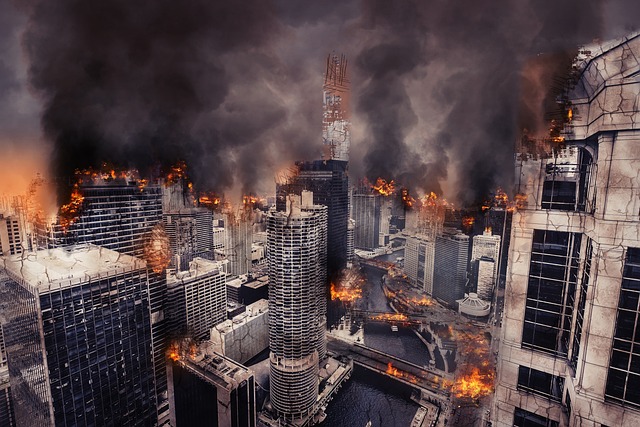
The future of distressed property sales in Illinois, particularly in Chicago, looks promising for investors who are attuned to emerging trends. With a growing interest in sustainable and affordable housing, there’s an opportunity to transform fire-damaged homes into eco-friendly, modern living spaces. This shift towards green building practices not only caters to the region’s evolving real estate preferences but also presents a chance for investors to capitalize on potential cost savings and increased property values.
Investors should consider the location and proximity to urban amenities when buying fire-damaged homes in Chicago. The city’s ongoing revitalization efforts could significantly impact property values over time, making areas previously considered distressed desirable. Additionally, with advancements in construction technology, there’s an opening for innovative renovations that blend historical charm with modern infrastructure, further enhancing the marketability of these properties and potentially attracting a new wave of buyers.
Distressed property sales, particularly fire-damaged homes in Chicago, present a unique opportunity for investors. By understanding the legal framework, market dynamics, and influencing factors involved, buyers can navigate this specialized sector effectively. The process of purchasing distressed real estate in Illinois is streamlined for qualified investors, offering potential for significant returns. Case studies demonstrate successful sales of fire-damaged properties, showcasing their resilience and market value. As the Chicago market evolves, investors should stay abreast of future trends and consider the diverse opportunities in selling fire damaged homes, making it a lucrative yet strategic investment avenue.




